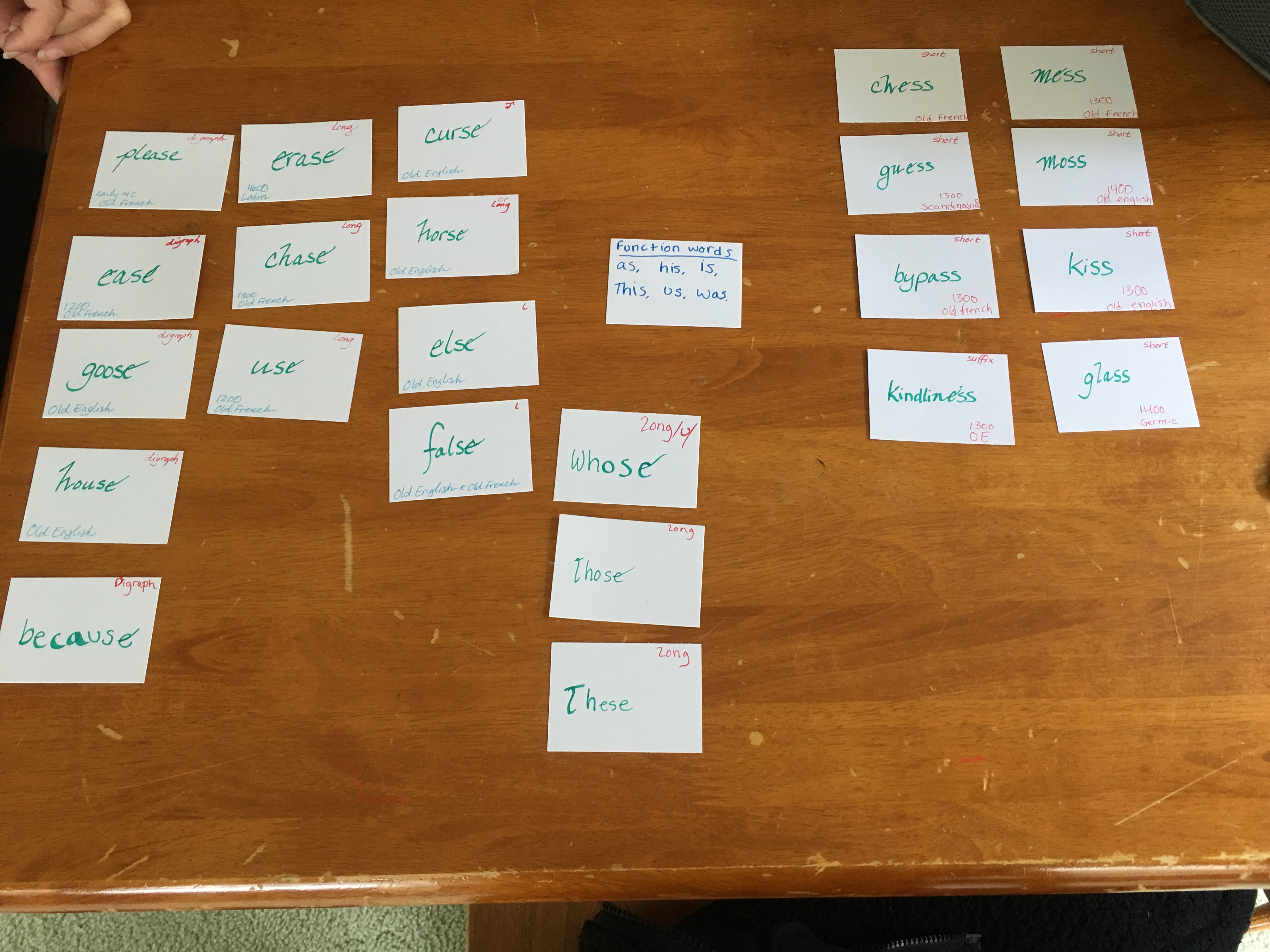
16 Oct Student led inquiry
Whoa, it’s been a while since I’ve added to my posts here. There just isn’t time to pull together a blog post with the thoughtfulness it deserves. But my work continues to amaze and excite me … the work I do with clients is incredibly rich and satisfying. What thrills me the most is when a client says, “I wonder why __________, can we figure that out?” Here is the story of one client’s query; we’ll call her Eve.
I like to sprinkle in quick-check questions as I work with a client, to make sure they’re recalling concepts we’ve discovered in earlier sessions. So as Eve and I read a story, I asked her why <address> had two <s>’s. She said, “Oh, to stop our brains from thinking it might be a plural. It’s a plural blocker.” Later, I asked why <house> had a single, final, non-syllabic <e>, and she said, “That’s another plural blocker. So my brain doesn’t see <hous> and think that there’s more than one <hou> and then have to think, ‘wait, there’s no such thing as a <hou> and then I have to go back and reread.”
Then she paused and said, “When do we use those plural blockers? How do I know if it’s a double <s> or a replaceable* <e>? Can we study it?”
“Sure,” I said, “What do you think? How should we study it?” (By the way, in case you’re thinking that I know all the things, I had no idea what we would discover, or if there was a pattern that would cover all the possibilities. But I know the English language evolved to be what it is for REASONS, and that if we study the words, they will reveal their story to us.)
“Well,” said Eve, “What if we found lots of words with both kinds of blockers and then we sorted them and tried to look for patterns? I love doing that.”
And so we did just that … we sorted this way and we sorted that way and we consulted sources for more ideas, and then we noticed some patterns. We left it at that, and the session ended.
The following week, she came in and said, “How do you spell <recess>? A friend of mine misspelled it at school today, and I started thinking about it and am not sure how to spell it either.” I had her give it a try, and she spelled it *<resces>. I’ll confess here that at first I didn’t have our discussion about plural blockers at the forefront of my thinking. I thought first about that <sc> instead of a <c>. So we went off on an exploration of the <cess> base. We discovered so many interesting things, including her first twin base (<cede> and <cess>). We were in deep and loving every second of it.
It was near the end that the discussion of plural blockers popped into my head. “Hey!” I said, “Let’s see if this fits our understanding of plural blockers. What do you remember from that discussion?”
Well, it turns out, neither of us remembered very much about the patterns we’d noticed. So we pulled our words out and studied the picture I’d taken (shared here as well). And we discovered that this word also fits the pattern we noticed. Like scientists, we keep adding data to our theory, looking for something that will disprove it or help us refine our understanding. With each review of our theory, the understanding grows deeper. When I asked her to spell a new word, one we hadn’t studied, at the very end of the session, she paused, struggled with it a bit, and then showed me her thinking. She had come up with the correct spelling, and her joy when I confirmed it was palpable. “Really? I spelled it correctly?!”
“Yes,” I responded, “You thought of a question, found a possible theory, and have now used that theory to spell an unfamiliar word. That’s pretty amazing!”
And that is why my work is such a joy. My clients are learning to ask questions, learning how to seek answers to their questions (that don’t involved just looking up something online and accepting whatever they find there), learning to review and refine their theories, and learning to apply them in new situations. This is real scholarship.
*We refer to the single, final, non-syllabic <e> as a “replaceable <e>” because that’s much, much faster. That idea came from one of LEX‘s students.

